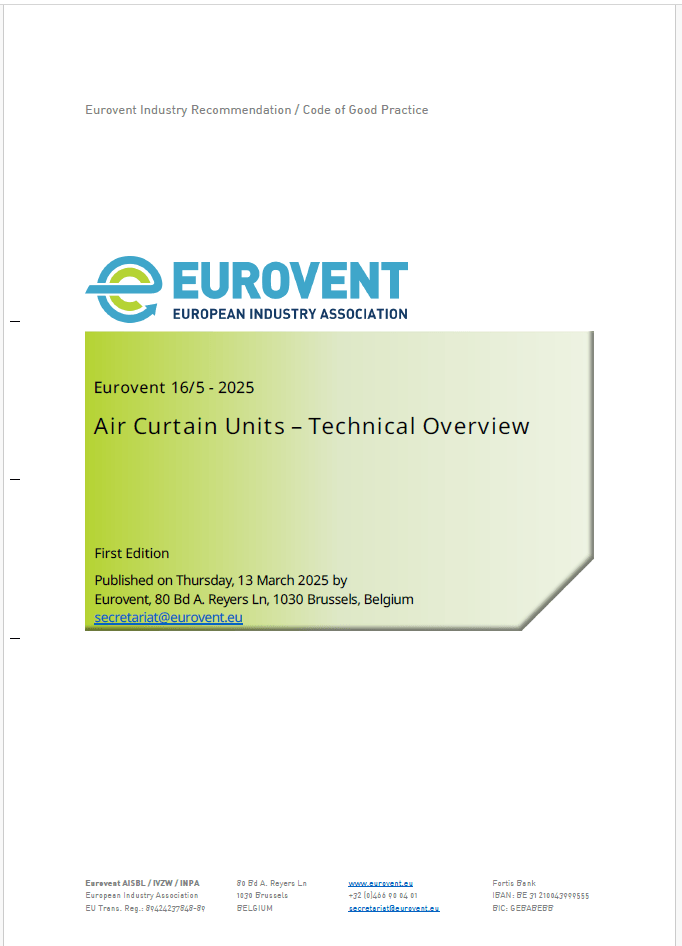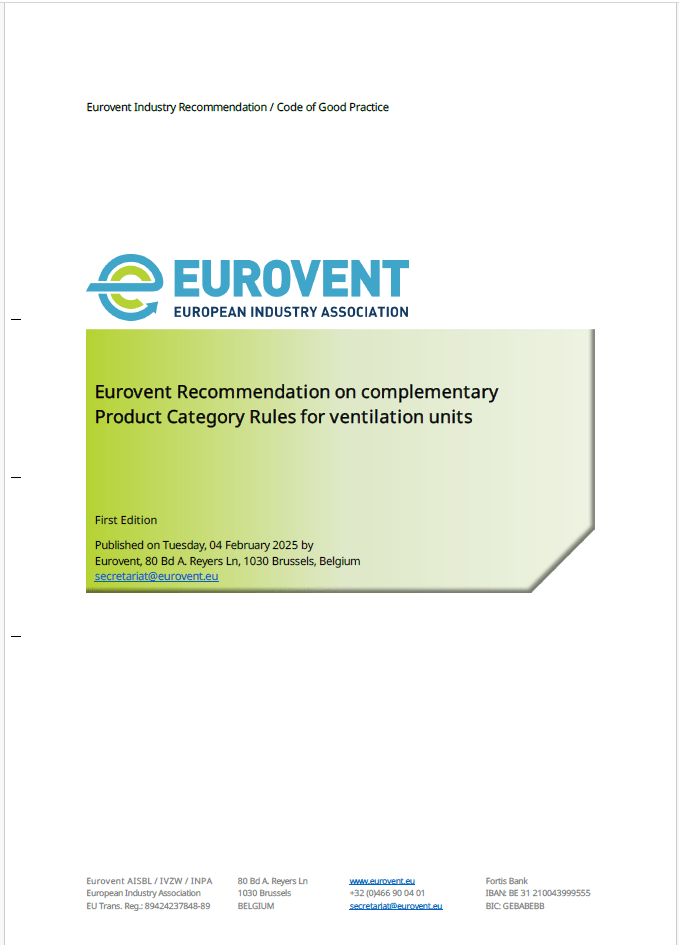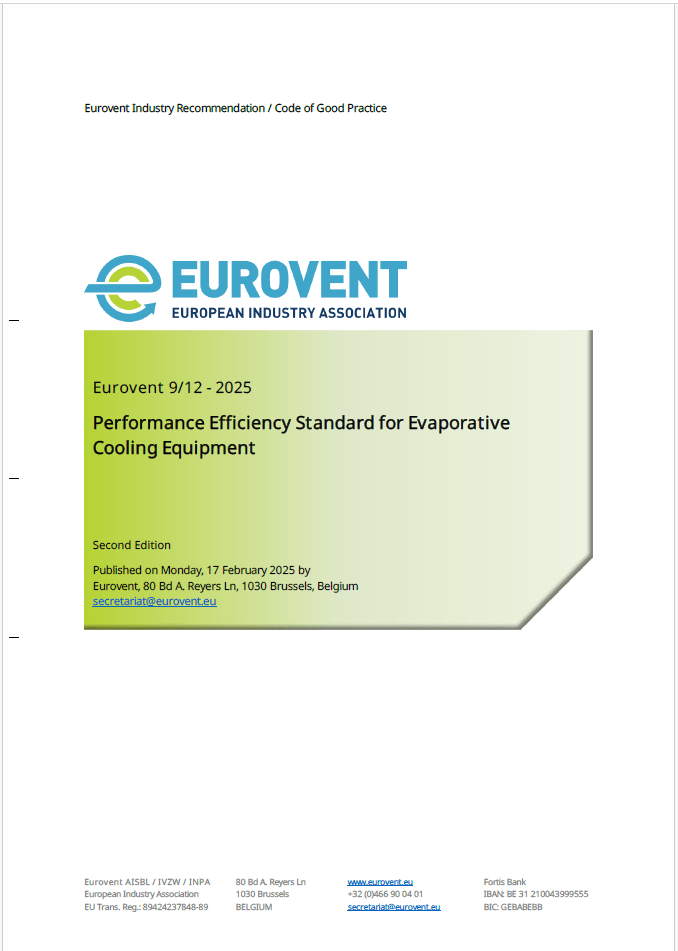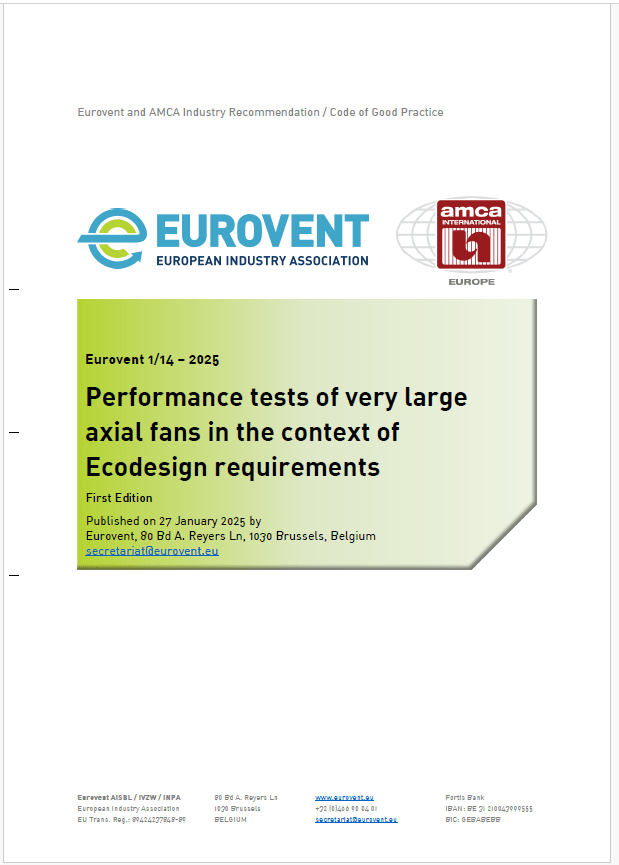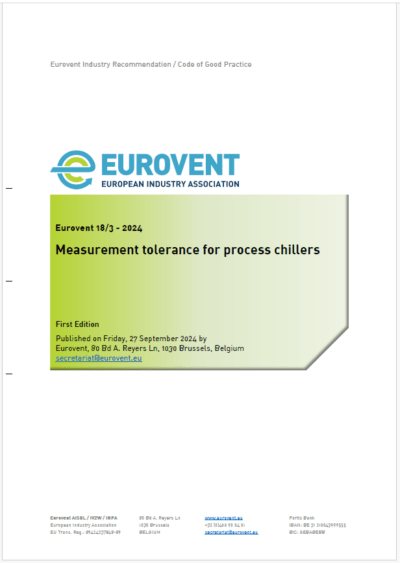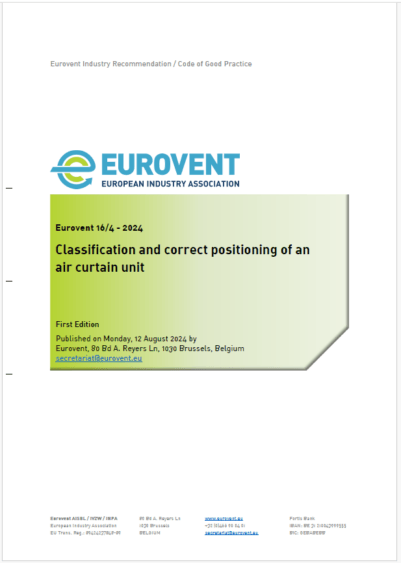EME-GEN – 20004.00. Eurovent Middle East, as the region´s industry association for Heating, Ventilation, Air-Conditioning and Refrigeration (HVACR) equipment manufacturers, is calling on healthcare facilities, building owners, operators and facility management providers to carefully observe the following recommendations by the industry to reduce the risks related to the spread of airborne viruses through ventilation and air-conditioning systems and support the government in its efforts to contain the outbreak.
The current crisis highlights the responsibilities of HVACR engineers, along with service and maintenance personnel, building owners and operators to carefully assess building ventilation systems and their conditions. Proper ventilation, with a higher degree of fresh air supply, the use of the correct filter types and careful maintenance can be important factors in the containment of the coronavirus outbreak.
General Considerations
The novel SARS-CoV-2 virus which causes the COVIDeurovent-market-intelligence/news/eurovent-market-intelligence/-19 disease, is mainly transmitted through contact with infected persons according to WHO. Breathing, as well as coughing and sneezing releases tiny infectious droplets into the air which potentially contaminate surrounding surfaces and of course the air in the immediate surrounding. These droplets, so called aerosols, can be of varying sizes, from 1 to over 10 µm (micron or micrometre, 1 micron equates to 0.001 mm). It is assumed by experts that viruses do not fly occasionally in the air but are always enclosed in droplets or attached to other particulate matter.
This raises the question in which way ventilation and air-conditioning systems play a role in the transmission or containment of epidemic diseases like COVIDeurovent-market-intelligence/news/eurovent-market-intelligence/-19. In the following, Eurovent Middle East outlines basic recommendations, which directly or indirectly bear on the spread of viruses and the well-being of people in occupied spaces. These recommendations are based on an industry wide consensus and should give guidance to best practises in relation to air filtration and ventilation in the current crisis.
Indoor Air Quality (IAQ)
Indoor Air Quality has become a popular topic over the past years as more and more countries shift their focus towards the health and well-being of building occupants in their daily life. Most people in the industrialised world spend up to 90% of their time indoors. The exposure to air contaminants, from dust to spores, bacteria, viruses and chemical compounds has direct influence on people’s immune systems and can cause a variety of conditions, from allergies to cancer or – an epidemic disease like COVIDeurovent-market-intelligence/news/eurovent-market-intelligence/-19.
Maintaining a healthy indoor air quality thus becomes a general, basic – yet extremely important – necessity. While this is true at all times, it’s imperative in times of a wider health crisis to avoid not only the direct spread of a virus, but to support peoples immune systems to withstand more serious impacts by an aggressive disease and thus reducing pressure on a healthcare system fighting against overload.
Air Filtration
The selection of air filters depends on the application environment and should be carefully assessed. While regular air filters are not designed to prevent the spread of viruses, they are essential in minimising the risk as viruses tend to attach to airborne particulate matter and aerosols. Thus, regular filters with a high filtration efficiency (ePM1 filters) are crucial to reduce the risk of diseases transmitted through the air. HEPA filters (High Efficiency Particulate Air) are mandatory in critical environments such as hospitals and healthcare facilities and can be also recommended for medium risk environments (high density of people) like airports, schools or other public spaces.
In light of the COVIDeurovent-market-intelligence/news/eurovent-market-intelligence/-19 problematic to severely affect the elderly and people with existing medical conditions, it is also recommended to use HEPA filters in all facilities designed to support, help, house or care for these groups. In general, the industry recommends increasing filter efficiencies for the duration of the epidemy.
Other recommendations:
1. Assess the type of building environment and the required air filter category. Comprehensive guidance on filter selection is provided by the Eurovent recommendation 4/23, which can be downloaded free-of-charge at the association’s website: www.eurovent.me
As a guidance, see below table:
| Application Area | High Risk Environment | Medium Risk Environment | Low Risk Environment |
|---|---|---|---|
| Examples | Laboratories, Hospitals, Isolation Rooms, Quarantine Spaces | Other medical facilities, airports, schools, public areas | Small offices, businesses, personal space |
| Type of filter required | HEPA + Relevant Containment Equipment | HEPA (recommended) or EPA filters | EPA (recommended) or Fine Dust Filter |
| Recommendation | Special care needs to be given upon replacement of filters. Treat them as biohazards! (wear protective masks, suits and gloves) | Special care needs to be given upon replacement of filters. Treat them as biohazards! (wear protective masks, suits and gloves) | Do not wash filters. Replace regularly. |
| Filter Class as per EN1822:2009 ISO16890 | Minimum H14 | Minimum H13 | ePM1 80% or higher |
2. Replace current air filters in case the filter category is unknown, doesn’t match the requirements stipulated in the recommendation or in case the pressure drop in the ventilation system is exceeding the manufacturer´s guidelines.
3. Only use certified filters with proven efficiency! Certificates issued by Eurovent Certita Certification can be checked online through the following link:
https://www.eurovent-certification.com/en/search-engine#/
4. HEPA (High Efficiency Particulate Air) filters should be mandatory in all healthcare-sensitive environments such as hospitals, clinics, quarantine facilities and ambulances, etc.
5. DO NOT cut or otherwise manipulate air filters to make them fit! Manipulated filters compromise their efficiency and are rendered useless!
6. DO NOT wash any kinds of filters, especially HEPA, EPA or ePM1 filters. Replace them!
Ventilation
The exchange of air in occupied spaces helps to reduce the exposure of people to contaminated air. Thus, an increase in the number of air exchanges is recommended through higher ventilation rates. The industry recommends increasing the fresh air supply and stop or reduce recirculation where possible. With still moderate temperatures prevailing in the Middle East, the penalty on energy consumption is acceptable.
Maintenance
Regular, carefully executed maintenance is essential for the ventilation and air filtration systems to work properly. In light of COVIDeurovent-market-intelligence/news/eurovent-market-intelligence/-19, Eurovent Middle East wants to underline that protective measures for maintenance personnel is of utmost importance.
1. Replacement of filters is to be done using masks and appropriate personal protective equipment.
2. The disposal of filters needs to be done correctly (sealed bags), and in line with local and international standards.
3. HEPA filters need to be treated as biohazardous waste. For critical areas such as quarantine rooms and bio safety labs, providing a safe change Bag-in-Bag-out containment system will not only help protect the environment while maintaining a negative pressure in the room but also help prevent maintenance personnel from being exposed and infected.
Recommended Actions
For further information and expert advice on the above recommendations or additional measures like installation of UV (ultraviolet) systems or air cleaners, Eurovent Middle East recommends reaching out to reliable suppliers, manufacturers or the association: office@eurovent.me.
Related documents and links
All related documents and articles can be found in the respective sections in the right sidebar.
- EME-GEN – 20006.00 – COVIDeurovent-market-intelligence/news/eurovent-market-intelligence/-19 Recommendations for Healthcare Facilities









